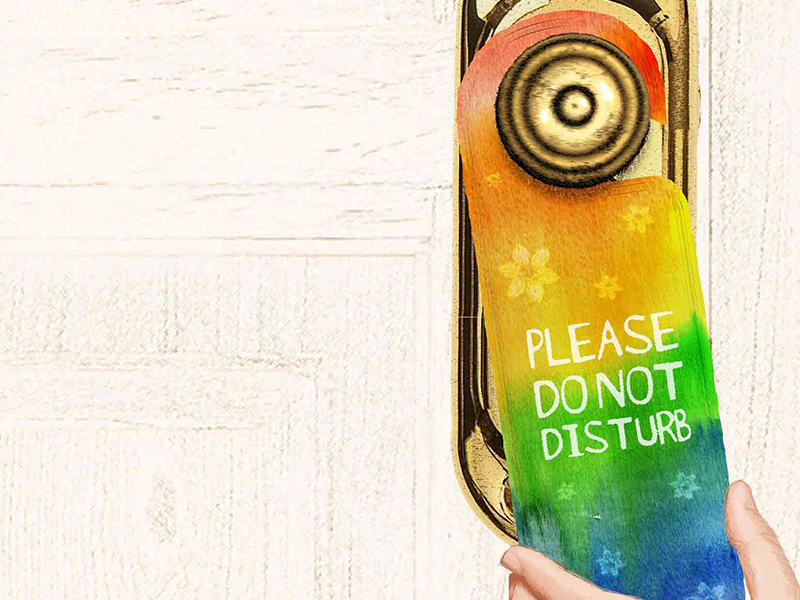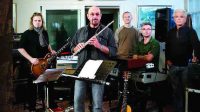Members of the Hong Kong lesbian, gay, bisexual and transgender (LGBT) community have heard the story time and again: a man and his husband check into a hotel after a long flight and grow increasingly exasperated as the smiling but confused receptionist asks for the third time: “Are you sure you don’t want separate beds?”
A gay activist who works in the travel business recalls a memorable Valentine’s Day promotional dinner when a waiter walked up to every table and presented each woman with a rose, but awkwardly skirted around a table where two men were eating. In each case somebody is made to feel out of place or unwelcome in a city that prides itself on its service, openness and hospitality.
More and more Asian destinations are courting the lucrative and rapidly growing LGBT demographic, but Hong Kong’s hospitality sector seems largely indifferent. And industry specialists like Tobias Holfelt warn that Hong Kong risks being left behind.
Holfelt is CEO of MB Market Makers, a European group that specialises in helping businesses and cities reach out to the LGBT community through staff training, marketing and targeted outreach efforts. He counts major European banks and even the city of Berlin among his clients. Although Holfelt is passionate about Asia, Hong Kong has eluded his reach despite a five-year effort to interest hotels and organisations such as the tourism board.
Finally this year he had a breakthrough – a major hotel chain invited him to help conduct staff training at a few of their properties.
His seminars cover marketing information about the demographics of the local and tourist LGBT groups, as well as practical tips. For example, how staff might recognise the various subgroups of the LGBT community, how to find information on local LGBT events and destinations and how to avoid looking surprised at same-sex couples.
Holfelt’s first two seminars went well, but the session at the final hotel fell through because of “scheduling conflicts”, despite having been planned for months, and only one woman turned up at what was supposed to be a talk to the management.
“She was,” he sighs, “not very responsive”.
In many other world cities, including Asian metropolises such as Taipei and Bangkok, hospitality staff are trained to meet the needs of LGBT guests: they advertise in specialist magazines and on websites, local gay and lesbian publications are readily available in the rooms and staff are knowledgeable about places and events that might interest LGBT visitors. Not so in Hong Kong. That’s not to say there’s overt bigotry.
The response from James Lu Shien- hwai, executive director of the Hong Kong Hotels Association, is typical: “I think Hong Kong people are very open-minded already so we don’t need to reach out to [the LGBT community] as a market specifically. We already treat them as equal human beings.”
Similarly, a spokesman from the Hong Kong Tourism Board says: “As a cosmopolitan, pluralistic and open society, Hong Kong welcomes all visitors, without distinction of any kind, such as gender, sexual orientation, nationality, race and religion.”
Many hotels note that sexual minorities often value their privacy more than other groups and do not want to be targeted or defined by their sexual orientation.
Holtfelt understands such views – to a point.
“It is true that many LGBT people do not want to [to be identified] as such, either because they have not or cannot come out or because they simply want to be known as individuals. However, that is not a reason not to market to them ... it is a matter of communication; you do not attract a segment by ignoring them.”
Besides, “reaching out to various demographics is just a standard exercise in niche marketing”, says a spokesman for the Pink Alliance.
And where some segments of the LGBT community are concerned, simply being tolerant is not enough.
“Keeping silent is saying we are not welcome,” says Anshuman Das, founder of the Pink Season, an annual festival for LGBT performers. “If you want our business, advertise to us ... if you don’t advertise, you run the risk of not getting our business. Simple.”
Gay rights activist James Gannaban thinks businesses can make a big impression by marketing to the community through preferred portals such as Dim Sum magazine or Pink Dollar, an app which identifies businesses that are gay friendly. Or they could sponsor events such as Mr Gay Hong Kong.
But even small gestures would go a long way, he says. “Have a gay happy hour or a little rainbow flag or sticker at the door, maybe beside the signs for Visa and MasterCard.”
The most important step may simply be raising basic awareness. “Hotels need to train their frontline staff to be aware that not all customers are heterosexual,” says the Pink Alliance spokesman. “If a same-sex couple turns up to book a honeymoon suite or wants to have an engagement party [in] the banquet room, their staff should be prepared to serve these customers’ needs just as they would when serving heterosexual customers.”
Hong Kong may be richly rewarded for adopting a more LGBT-friendly tourism strategy. The Hong Kong Tourism Board estimates that visitors typically stay for three days, spending about HK$6,000 a day. With a little international outreach, combined with some sensitivity training on the home front, MB Market Makers estimates that within five years Hong Kong could easily attract up to 200,000 additional visitors a year from the global LGBT community. That, Holfest says, would add up to an increase of HK$18 billion in annual tourism revenues.
The mainland also offers a massive, largely untapped, LGBT market. Just 1 per cent would equate to about one million new customers.
However, some businesses are beginning to court LGBT customers. Restaurants and nightspots such as FINDS, drop, Bisous and, most recently, Pulp are gaining a reputation for being gay friendly. And far from polarising their customers, this openness has given the businesses an added dimension. Janelle Zai, a founding partner in Bisous, says all its LGBT-targeted events, such as monthly drag shows performed by Les Fleurs Sauvages and Mr Gay Hong Kong pageants, have been “amazing and attracted not only the LGBT community but also the heterosexual community”.
Some smaller hotels are also slowly coming around. The Mira Moon, a designer hotel in Wan Chai due to open later this year, has made sure to include affluent LGBT clientele in its planning. Its marketing team has already partnered with World Rainbow Hotels, which specialises in the LGBT market, says Mira Moon’s director of sales and marketing Jaly Lai. They have also put together a list of gay and lesbian friendly bars, restaurants, shopping areas and points of interest in the vicinity for LGBT guests.
W Hotels, whose stylish properties around the world have long been havens for alternative lifestyles, shows what can be achieved. Inspired by the success of a similar scheme at its Taipei branch, W Hong Kong is preparing to launch a Pink Wedding Package.
Stewart Chen, marketing and communications manager of W Hong Kong, says the reputation that cities like Taipei and Bangkok have as destinations that welcome gay travellers has only been possible because of work from city and national governments.
“We really look at this community as a huge potential market,” he says. “But personally, I think if the government and the tourism board can show some more support, it will allow us to be more free and outspoken. People won’t need to hide any more.”


